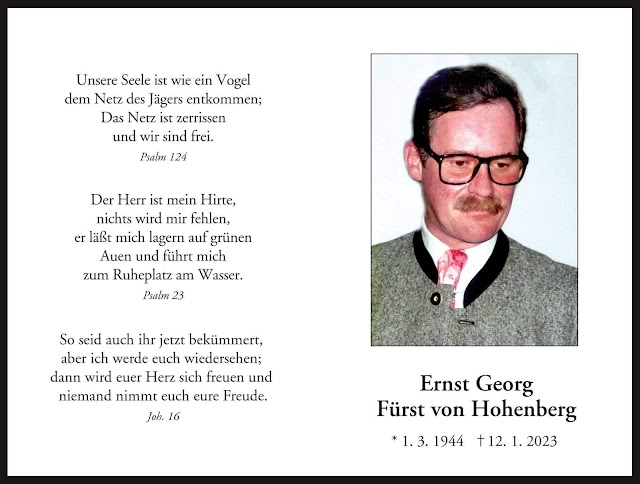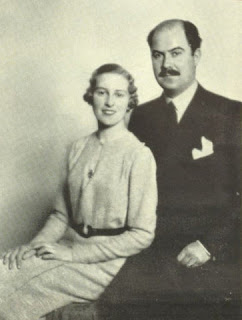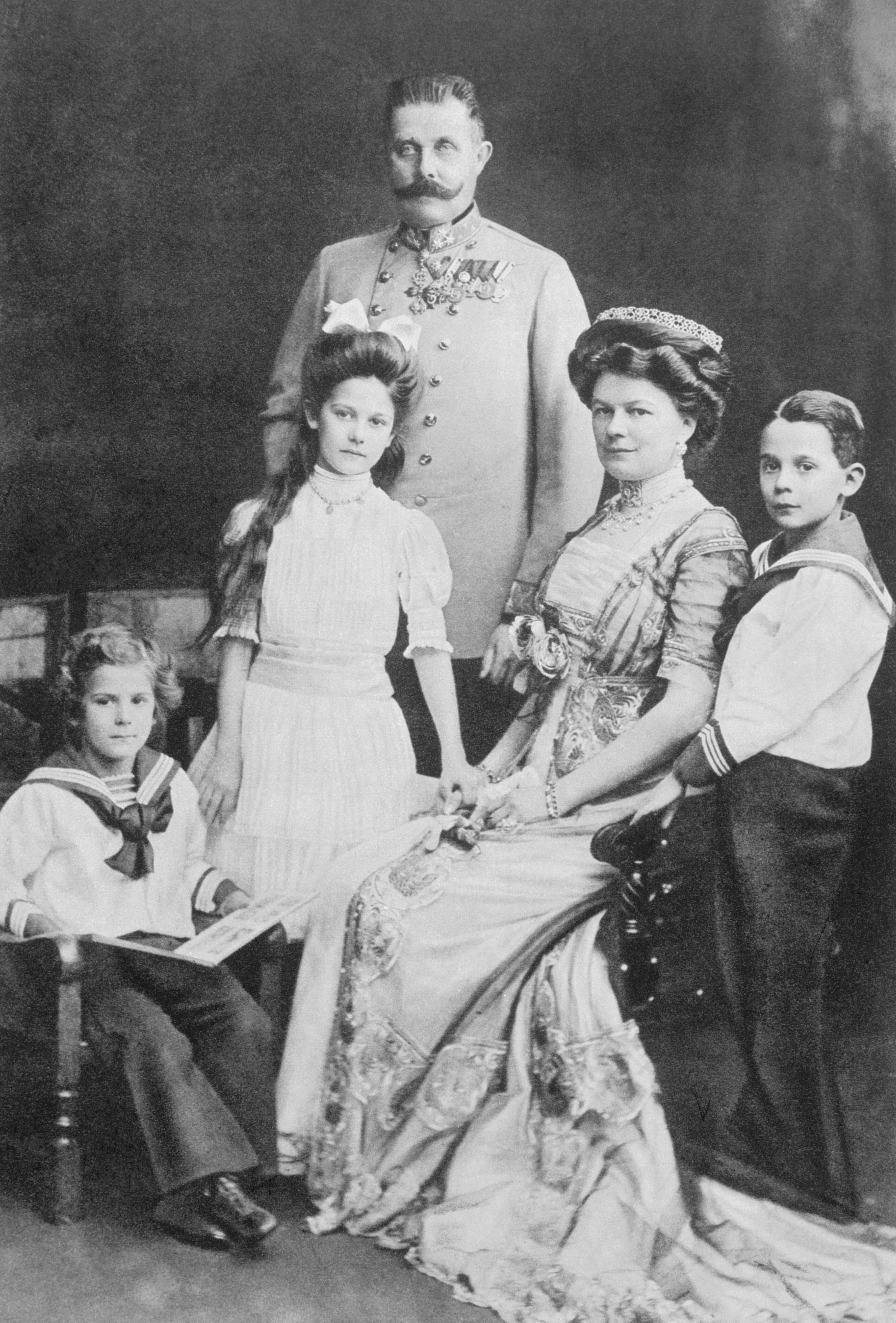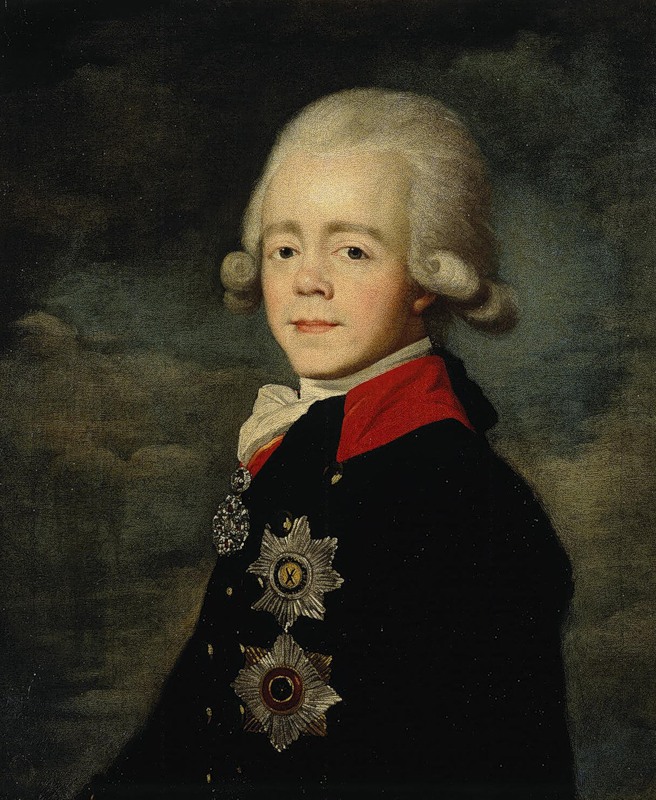 |
| Alice Javal Weiller. |
 |
| The birth record of Alice Anna Laval, 1869. |
NOTE: My sincere gratitude to my dear friend Jakob Regnér, who discovered much of the information about the life story and tragic fate of Alice Javal Weiller.
On 10 October 1869 at Paris, Alice Anna Javal was born as the eldest child of Louis Émile Javal (1839-1907) and Maria-Anna Ellissen (1847-1933). Alice was followed by four younger siblings, the twins Jeanne Félicie Javal (1871–1956; married Paul Louis Weiss) and Jean Félix Javal (1871-killed in action 1915), Louis Adolphe Javal (1873-murdered at Auschwitz 1944) and Mathilde Julie Javal (1876–murdered at Auschwitz 1944).
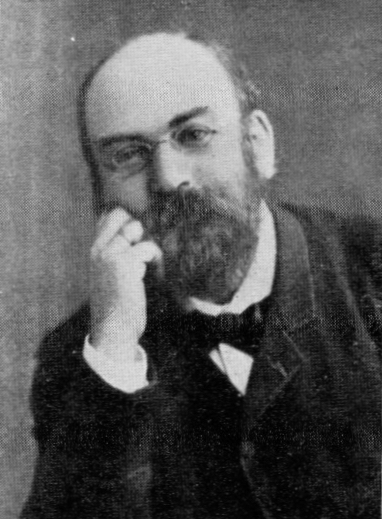 |
| Alice's father Émile Javal. |
Alice's father Émile Javal was a French doctor, ophthalmologist and politician. Alice was the paternal granddaughter of Léopold Javal (1804-1872) and Augusta de Laemel (1817-1893). Léopold Javal was the founder of an influent family of Alsatian industrialists of Jewish origin. Alice's maternal grandparents were Édouard David Ellissen (1808-1857) and Theodora Ladenburg (1819-1911).
 |
| The wedding banns of Alice Javal and Lazare Weiller, 1889. |
 |
| Alice Javal's husband Lazare Weiller. |
On 12 August 1889 in Paris, Alice Anna Javal married Jean Lazare Weiller (1858-1928), the son of an Alsatian Jewish couple Léopold Weiller and Reine Ducasse. The witnesses at the wedding were the politician and writer Eugène Spuller, the poet Sully Prudhomme, and Adolphe Carnot, brother of the President of France. In 1882, Lazare had converted to Roman Catholicism; that same year he married his cousin Marie-Marguerite Jeanne Weiller, who died in 1883 while giving birth to the couple's only child, a son named Jean, who died at the age of two. Alice and Lazare Weiller had four children: the twins Léopold Jean-Pierre Weiller (1890-1970) and Jeanne Marie-Thérèse Weiller (1890-1992; married Marcel Brulé), Georges-André Weiller (1892-1973), and Paul-Louis Weiller (1893-1993; married Alíki Diplarákou).
 |
Wilbur Wright, Lazare Weiller, and Henri Deutsch de la Meurthe, 1908.
Source: Gallica. |
 |
Alice Javal Weiller, 1908.
Source: Gallica. |
In 1908, Alice's husband Lazare had established an 100,000 gold franc award for whoever might complete a one-hour closed circuit flight. The Wright brothers, Orville and Wilbur, traveled to France, where they ended up winning the prize. Like her husband, Alice Weiller had begun to take an interest in the nascent aviation sector, and she met the Wright brothers. On 9 October 1908 at Auvours, Alice Weiller made her first flight in the Wright Model A biplane, which was piloted by Wilbur Wright.
 |
| Lazare Weiller, 1920. |
On 12 August 1928 at Vaud, Switzerland, Lazare Weiller died followed a heart attack brought on the by complications from diabetes. In 1920, Weiller had been elected as Senator from the Bas-Rhin, and he was reelected in 1927. Weiller had campaigned for the re-establishment of diplomatic relations between France and the Holy See, and he was interested in furthering France's ties with Germany, the United States and the United Kingdom.
 |
| Alice Javal Weiller is granted the Legion of Honour. |
In 1932, Alice Weiller became vice-chairman of a committee of the Alsace-Lorraine Society promoting holiday camps for the working classes. Madame Weiller was appointed a chevalier of the Legion of Honour on 23 July 1932 by President Albert Lebrun.
 |
| Drancy Interment Camp. |
When World War II broke out, members of the Javal family eventually became targets of Nazi officials after the German armed forces occupied France. Alice Javal Weiller, along with her brother Adolphe Javal and his family, were interred in the Drancy Interment Camp near Paris. On 2 September 1943, Alice Javal Weiller was was put Transport 59, destined for the Auschwitz Birkenau Extermination Camp in Poland. When Alice arrived at Auschwitz on 4 September, she was immediately murdered in the gas chambers. According to Yad Vashem: "
On September 2, 1943, a train with 1,000 Jews on board, over a half of whom were French citzens, departed from the Bobigny station to Auschwitz at 10:00. Leutnant Wannenmacher was tasked with supervising the train. Based on the schedule of a transport out of Bobigny in November 1943, the train probably took the following route: Bobigny, Noisy-le-Sec, Epernay, Chalons-sur-Marne, Revigny, Bar-le-Duc, Noveant-sur Moselle (Neuburg), Metz, Saarbruecken, Frankfurt on Main, Dresden, Goerlitz, Liegnitz (Legnica), Neisse (Nysa), Cosel, Katowice (Kattowitz), Auschwitz. Librati further describes the journey: 'On the way four prisoners attempted to escape […] The escapees were promptly captured and killed immediately. As a punishment, the SS took all the other passengers out of the car, ordered them to strip, leave their luggage behind, and board the car again, completely naked with nothing but a blanket to cover them.' When the transport reached Auschwitz on September 4, 232 men and 106 women were selected for labour; the men were tattooed with numbers ranging from 145796–146027 and the women received the numbers 58300–58405. The other 662 deportees were murdered in the gas chambers as soon as they reached the camp."
 |
Yad Vashem's Page of Testimony regarding Alice Javal Weiller.
Source: Yad Vashem. |
Alice Javal Weiller was seventy-three years-old when she was killed in the Holocaust, solely she was Jewish. The next year, on 7 March 1944, Alice's sister Mathilde Javal, her sister-in-law Mathilde Helbronner Javal, and her niece Isabelle Javal (1919-1944), were moved from the Drancy Internment Camp via Transport 69 and taken to Auschwitz. According to Yad Vashen: "The transport departed from the Paris-Bobigny station on March 7, 1944, with a total of 1,501 deportees, according to the list prepared in the Drancy internment camp." When they were taken to the concentration camp, the three women were murdered. Two months later, on 20 May 1944, Alice's brother Adolphe Javal, who had also been held at Drancy, was put on Transport 74 to Auschwitz. According to Yad Vashem: "The 74th transport left Paris-Bobigny on May 20, 1944. The deportation list, compiled at Drancy, comprises 1,200 names." Transport 74 arrived at the concentration camp on 23 May, and Adolphe Javal was also murdered at Auschwitz.
 |
| Alice Weiller remembered on the Shoah Memorial in Paris. |
May the memory of Alice Anna Javal Weiller and her family be eternal.
+++++++
Alice Javal Weiller is the great-grandmother of Princess Sibilla of Luxembourg.
Alice Anna Javal (Paris 10 October 1869 – Auschwitz 4 September 1943); married Paris 12 August 1889 Jean Lazare Weiller (Sélestat, France 20 July 1858 – Territet, Switzerland 12 August 1928)
|
Paul Louis Weiller (Paris 29 September 1893 – Geneva 6 December 1993); married 2ndly (divorced) 31 October 1932 Aliki Diplarakou (Athens 28 August 1912 – 30 October 2002)
|
Paul-Annick Weiller (Paris 28 July 1933 – Geneva 2 November 1998); married Rome 26 June 1965 Donna Olimpia Emmanuela Torlonia di Civitella-Cesi (b.Lausanne 27 December 1943)
|
Sibilla Sandra Weiller y Torlonia (b.Neuilly-sur-Seine 12 June 1968); married September 1994 Prince Guillaume of Luxembourg (b.Betzdorf, Luxembourg 1 May 1963)













